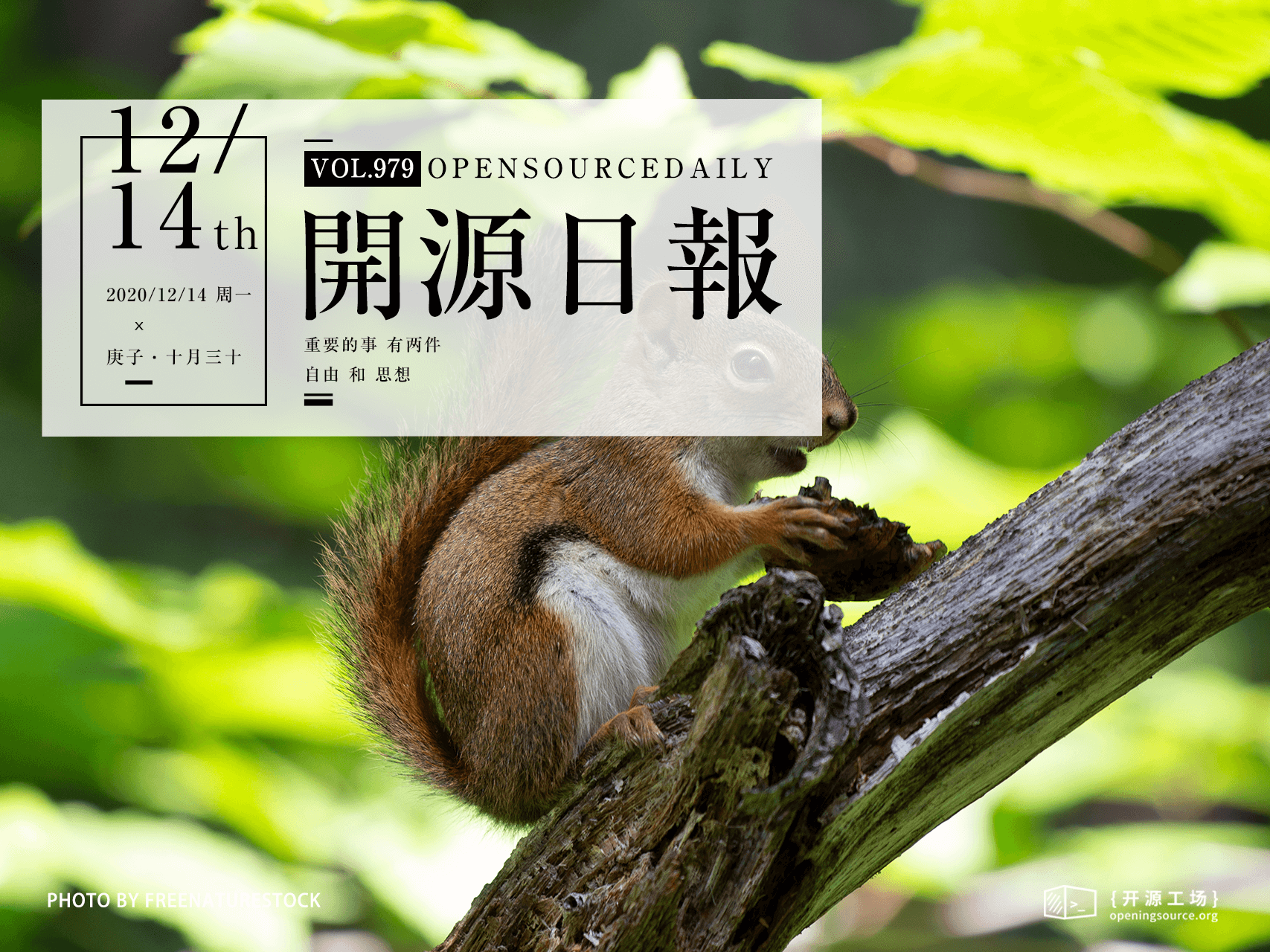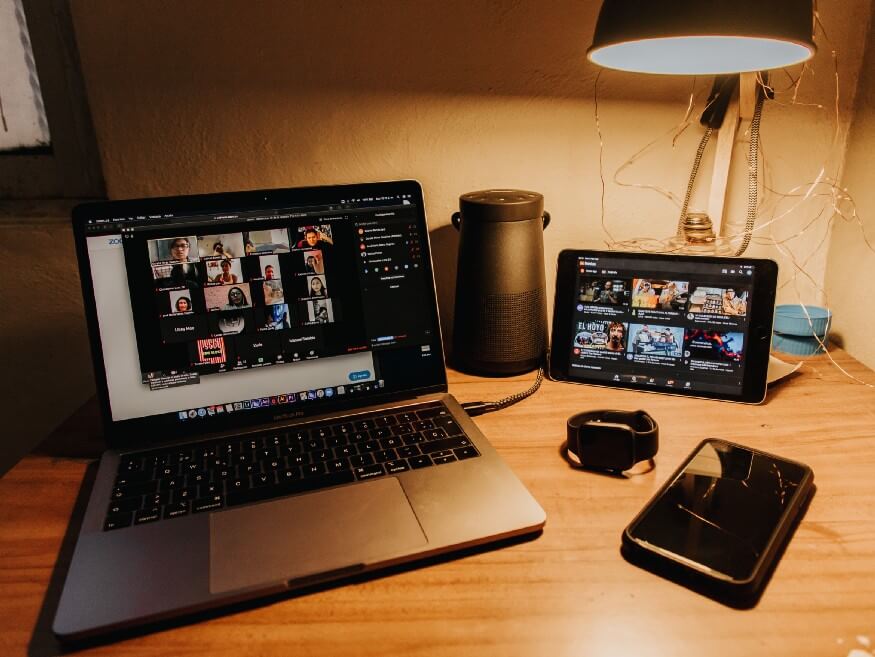今日推荐开源项目:《Java 工具 chimm.excel》
今日推荐英文原文:《Do People Still Have Zoom Parties?》

今日推荐开源项目:《Java 工具 chimm.excel》传送门:项目链接
推荐理由:该项目是基于 Apache POI 和 Antlr4 打造的生成 excel 的 Java 工具。主要功能:通过在 excel 软件中编写模板,即可在 java 程序中对数据进行快速处理,减少了开发人员通过程序生成表格的工作量,提高了工作效率。
今日推荐英文原文:《Do People Still Have Zoom Parties?》作者:Viola Altiste
原文链接:https://medium.com/the-shadow/do-people-still-have-zoom-parties-d40b3ed6b7cb
推荐理由:线上聚会肯定比面对面差远了啊。
Do People Still Have Zoom Parties?
A young millennial just misses her friends

(Photo by Gabriel Benois on Unsplash)When the pandemic first hit in March 2020, I received an overwhelming amount of invites from friends near and far to have Zoom parties. At first, it was a really good opportunity to reconnect and “see” friends that I had not spoken to in years. These Zoom hangouts got me through those early days of the pandemic when I felt so lost after countless shutdowns and cancellations.
As time went on, however, it was a nuisance to listen to people talk on a computer screen for hours on end. I had to attend several serious meetings on Zoom for work-related reasons. Additionally, I was taking an online course that required frequent Zoom sessions. I was so tired of being on Zoom all day that I couldn’t even bring myself to video call family members or friends for fun.
Many regions introduced social bubbles as Covid cases declined over the summer. Essentially, you could form a bubble of up to ten people who do not need physical distance from one another. The idea is that you were only ever in close contact with these people.
It is important to note that all members of your household are automatically part of your bubble so, in reality, it is difficult to make it truly ten people if you want to see multiple family members or groups of friends.
The social bubble concept brought me back to my socially awkward high school self. Throughout this pandemic, I was in an incredibly fortunate position to have had my boyfriend in my bubble, but I missed the friend group dynamic.
I would painfully scroll through countless social media posts of people reconnecting with their friends and family, wishing I could experience that joy. It was no different from my high school days where my classmates would attend countless social events while I sat on the sidelines wishing I could have something simple like a group of friends to sit with at lunch.
When my online course finished, I took some much needed time away from Zoom meetings and resumed my video chats with my parents and out of town friends.
However, I felt conflicted about how I should maintain a connection with my friends in my area. I wasn’t comfortable initiating an in-person hangout as my boyfriend had been meeting a few of his friends, which would have created a contact-tracing nightmare.
It felt silly to consider a Zoom gathering as everyone was meeting in person again. Therefore, I had no choice but to watch everyone else have fun while I sit at home and do nothing, just like in high school.
The second wave of Covid-19 finally made it to my isolated Canadian city a month ago. Social bubbles are paused so obviously, this must mean that people will get back into Zoom parties. Not so simple.
My work colleagues and I did attempt to resume Zoom gatherings this fall. At first, people enjoyed catching up and hanging out just like old times. As we had more, they became increasingly poorly attended until we gave up altogether.
I completely understand why people are no longer interested in virtual gatherings. Online meeting platforms have become a necessary evil in our lives, but no technology will ever replace in-person gatherings. We’re all so burnt out from our necessary online meetings that Zoom cocktail hour is just too much.
I’m certainly not complaining about the restrictions, I am a huge advocate of staying home and not meeting with anyone outside your household. I continue to make huge personal sacrifices to protect myself and others.
The lack of interest in online events during the second wave combined with the inability to meet in social bubbles has caused me to feel more disconnected than ever. In some ways, I was feeling more satisfied socially in March and April when Zoom hangouts were all the rage.
Zoom parties are awkward, put simply. If there are ten people there, for example, all ten of us have to participate in the same conversation. If I’m feeling excluded from a conversation at an in-person party, I can walk over to someone else. When two people dominate the conversation on Zoom, we are all stuck listening to them until someone figures out how to change the subject.
I still enjoy being at Zoom parties, even if I am mostly an observer. Seeing people on a computer screen is better than nothing at all.
As time went on, I found I much preferred having video calls with specific people than attending large virtual gatherings. I would still scroll social media and see people having online group gatherings and wonder why I couldn't be a part of that or have that in my life.
I know you are probably thinking, “Wow, first world problems”. It’s true, I have been extremely privileged during this whole pandemic.
Although I was not able to work as a musician during the pandemic, my orchestra fully paid all the musicians until the end of our contract. During the summer, I was eligible to collect the Canadian Emergency Response Benefit, which honestly was not a lot of money, but it kept me afloat financially for four months as I do not have children or other dependents to support.
Technically, my boyfriend and I both live alone, so we were able to be a two-person bubble the whole pandemic and essentially have our trial move-in. Even though we had only been officially dating for one month when the pandemic began, we knew we needed to be there for each other to get through these crazy times.
No amount of acknowledging my privileges will ease the sense of loneliness and isolation I feel, however. I miss the open-invite gatherings we had in the old days. Virtual hangouts, although better than nothing, cannot fully replicate a party.
With promising news of a vaccine, it seems as though normal may be just around the corner. I choose to proceed with cautious optimism, however.
As a professional musician, my industry has been hit quite harshly by lockdowns and restrictions. I am thankful that I was able to resume work this fall, but we are still subject to strict distancing protocols. I would love nothing more but to play with a large orchestra and sit close together without needing to wear masks, but we are a long way from that.
Even with the vaccine, I’m preparing myself for the possibility of distancing and wearing masks for at least another year or two, if not longer. It will take time to get the vaccine widely distributed and then ensure that it is working.
What does this mean for Zoom parties? Are people going to learn how to embrace online gatherings for the next few years or are we just never going to speak to those outside our household until Covid is eradicated?
As a 26-year-old, I am transitioning out of young adulthood, so not seeing my friends isn’t as much of a tragedy as I make it sound. I am in a committed relationship and having my boyfriend in my life means way more to me than being invited to some Zoom hangout or social bubble.
However, I still feel young and enjoy socializing with friend groups in a similar way to my university years. I didn’t want to become that person who only cares about their partner and never has time for friends anymore, but it’s hard to see anyone outside your household in a pandemic.
I continue to tell myself that everyone has their own battles in the pandemic. There’s no need to cause drama or take it personally if people aren’t interested in meeting on Zoom or in person.
One day, possibly within the next year, we can resume social gatherings. Until then, we must have patience and kindness with our friends. For now, we Zoom and embrace its awkwardness.
下载开源日报APP:https://openingsource.org/2579/
加入我们:https://openingsource.org/about/join/
关注我们:https://openingsource.org/about/love/
